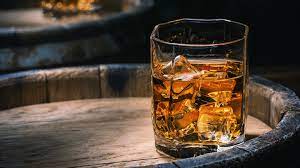Scotch whisky is a type of whisky that is made exclusively in Scotland. It is one of the most popular alcoholic beverages in the world and is known for its unique taste and high quality. The production of scotch whisky is regulated by strict laws that ensure that only whisky that is made according to certain standards can be labeled as scotch whisky.
So, what is scotch whisky exactly? Let’s take a closer look at its history, production, and characteristics.
What is Scotch whiskey, and how is it made?
Scotch whisky is a type of whisky that is made exclusively in Scotland. It is a distilled spirit that is produced using barley, water, and yeast. The production process of scotch whisky is highly regulated, and there are strict laws in place to ensure that only whisky that is made according to certain standards can be labeled as scotch whisky.
The production process of scotch whisky begins with the malting of barley, which involves soaking the barley in water and allowing it to sprout. The sprouted barley is then dried in a kiln, which gives it the distinctive smoky flavor that is characteristic of scotch whisky.
The next step in the production process is mashing, where the dried and ground barley is mixed with hot water to extract the sugars. The resulting liquid, known as wort, is then cooled, and yeast is added to it. This mixture is left to ferment for several days, producing a liquid known as wash.
The wash is then distilled twice in copper stills to create a clear liquid with an alcohol content of around 70%. This liquid is then aged in oak barrels for a minimum of three years, although many scotch whiskies are aged for much longer.
During the aging process, the scotch whisky absorbs flavors from the oak barrel, which gives it its distinctive color and flavor. The longer the scotch whisky is aged, the more complex and nuanced its flavor becomes.
Is scotch whiskey only produced in Scotland?
Yes, scotch whisky is exclusively produced in Scotland. The production and labeling of scotch whisky is protected by law, which means that it can only be called scotch whisky if it is produced in Scotland and meets certain legal requirements.
These requirements include using specific ingredients, following certain production methods, and being aged for a minimum of three years in oak barrels in Scotland. Therefore, any whisky that is not produced in Scotland cannot be called scotch whisky.
What are the different types of scotch whiskey?
There are several different types of scotch whisky, which are differentiated by their production methods and aging processes.
Here are the main types of scotch whisky:
- Single malt scotch whisky: This is a whisky that is made from 100% malted barley and is produced at a single distillery. Single malt scotch whiskies are known for their complex flavors and are often aged for a minimum of 10-12 years.
- Blended scotch whisky: This is a blend of two or more single malt scotch whiskies and often includes grain whisky as well. Blended scotch whiskies are the most common type of scotch whisky and are known for their smoothness and consistency.
- Single grain scotch whisky: This is a whisky that is made from a combination of malted barley and other grains, such as wheat or corn. Single-grain scotch whiskies are often used in blends but can also be enjoyed on their own.
- Blended malt scotch whisky: This is a blend of two or more single malt scotch whiskies from different distilleries. Blended malt scotch whiskies are also known as “vatted malts” and are often created to showcase the unique characteristics of different distilleries.
- Blended grain scotch whisky: This is a blend of two or more single-grain scotch whiskies from different distilleries. Blended grain scotch whiskies are less common than other types of scotch whisky but can offer unique flavor profiles.
In addition to these types of scotch whisky, there are also various sub-categories based on the age of the whisky, the region of Scotland where it is produced, and other factors. Ultimately, the type of scotch whisky you choose will depend on your personal preferences and the occasion.
What is the difference between single malt and blended scotch whiskey?
The main difference between single malt and blended scotch whisky is the production process and the ingredients used.
Single malt scotch whisky is made exclusively from 100% malted barley and is produced at a single distillery. This means that all of the whisky in the bottle comes from the same distillery and is made using the same ingredients and production process. Single malt scotch whisky is known for its complex and nuanced flavors, which can vary depending on the distillery, the aging process, and other factors.
Blended scotch whisky, on the other hand, is a combination of two or more single-malt scotch whiskies and often includes grain whisky as well. Blended scotch whisky is created by expert blenders who combine different whiskies to create a smooth and consistent flavor profile. Blended scotch whisky is often less expensive than single-malt scotch whisky and is a popular choice for everyday drinking.
In terms of taste, single-malt scotch whisky is often more complex and has a stronger flavor profile than blended scotch whisky. However, blended scotch whisky can offer a smoother and more balanced flavor that is often preferred by those who are new to scotch whisky.
Ultimately, the choice between single malt and blended scotch whisky comes down to personal preference and the occasion. Single malt scotch whisky is often seen as a more premium and special occasion drink, while blended scotch whisky is a popular choice for everyday drinking.
How long is scotch whiskey aged for?
By law, scotch whisky must be aged for a minimum of three years in oak casks in Scotland before it can be sold as scotch whisky. However, many scotch whiskies are aged for much longer than this, with some being aged for 10, 15, 18, 21, or even 25 years or more.
The aging process is an important part of scotch whisky production, as it allows the whisky to develop its unique flavor profile and character. During the aging process, the whisky interacts with the oak cask, which imparts flavor and color to the whisky. The longer the whisky is aged, the more complex and nuanced its flavor profile can become.
The age statement on a bottle of scotch whisky indicates the youngest whisky in the bottle. For example, if a bottle of scotch whisky is labeled as “12 years old,” it means that the youngest whisky in the bottle has been aged for at least 12 years.
It’s worth noting that not all scotch whiskies carry an age statement. Some scotch whiskies, such as blended scotch whiskies, may not have an age statement as they are a blend of different whiskies of different ages. In these cases, the blender uses its expertise to create a consistent flavor profile regardless of the age of the whiskies used.
Can scotch whiskey be made from any type of grain?
No, scotch whisky cannot be made from any type of grain. By law, scotch whisky must be made from malted barley, water, and yeast. While other grains, such as wheat or corn, can be used in the production of scotch whisky, they must be used in conjunction with malted barley and in accordance with the legal requirements for scotch whisky production.
The use of malted barley is an essential part of scotch whisky production, as it provides the enzymes necessary for converting the starches in the barley into fermentable sugars. This process, known as mashing, is the first step in the production of scotch whisky and sets the stage for the rest of the production process.
Other grains, such as wheat or corn, can be used in conjunction with malted barley to create different types of scotch whisky, such as single-grain scotch whisky or blended-grain scotch whisky.
However, the use of these grains must be in accordance with the legal requirements for scotch whisky production and must not compromise the unique flavor and character of scotch whisky.
Is scotch whiskey gluten-free?
While scotch whisky is made from barley, which contains gluten, the distillation process removes most of the gluten from the final product. As a result, most scotch whiskies are considered to be gluten-free and are safe for people with gluten sensitivities or celiac disease to consume in moderation.
However, there is still a small risk of gluten contamination during the production process, especially if the whisky is aged in casks that previously contained other grain-based alcohols. Additionally, some scotch whiskies may contain small amounts of gluten that are below the threshold for labeling as “gluten-free.”
If you have gluten sensitivity or celiac disease, it’s important to exercise caution when consuming scotch whisky and to consult with a healthcare professional to determine what types of alcohol are safe for you to consume.
What is the alcohol content of scotch whiskey?
The alcohol content, or ABV (alcohol by volume), of scotch whisky, can vary depending on the specific product. However, by law, scotch whisky must have a minimum ABV of 40% (80 proof) in order to be sold as scotch whisky.
Some scotch whiskies may have a higher ABV, with cask strength or barrel-proof whiskies often having an ABV of 50% or higher. These higher ABV whiskies are typically bottled without dilution, meaning that they have a more intense flavor profile and can be quite potent.
It’s important to consume scotch whisky in moderation and to be aware of its alcohol content, especially when drinking higher-ABV whiskies.
How should scotch whiskey be served and consumed?
Scotch whisky is a versatile spirit that can be enjoyed in a variety of ways, depending on personal preference. Here are a few suggestions for serving and consuming scotch whisky:
- Temperature: Scotch whisky can be enjoyed at room temperature or slightly chilled. Some people prefer to add a few drops of water to their whisky to open up the flavors and aromas.
- Glassware: A Glencairn glass is a popular choice for serving scotch whisky, as it allows the whisky’s aromas to be captured and concentrated for a more immersive tasting experience. However, any glass that is tapered at the top can be used to enjoy scotch whisky.
- Neat: Many scotch whisky drinkers prefer to enjoy their whisky neat, meaning that it is served without any mixers or ice. This allows the whisky’s flavors and aromas to be fully appreciated.
- On the rocks: Some scotch whisky drinkers prefer to enjoy their whisky over ice, which can help to mellow out the flavors and make the whisky more refreshing on a hot day.
- Cocktails: While some scotch whiskies are best enjoyed on their own, others can be used to create delicious cocktails. Classic scotch cocktails include the Rusty Nail and the Rob Roy, but there are countless other possibilities to explore.
Ultimately, the best way to enjoy scotch whisky is whatever way you prefer. Whether neat, on the rocks, or in a cocktail, scotch whisky is a spirit that can be savored and appreciated in many different ways.
What are the health benefits and risks of drinking scotch whiskey?
While moderate consumption of scotch whiskey has been associated with some potential health benefits, excessive drinking can have negative health effects. Here are some potential health benefits and risks associated with drinking scotch whiskey:
Health benefits:
- Antioxidants: Like other types of whiskey, scotch whiskey contains antioxidants that may help to protect against cellular damage caused by free radicals.
- Cardiovascular health: Moderate consumption of scotch whiskey has been associated with improved cardiovascular health, including a lower risk of heart disease and stroke.
- Digestive aid: Whiskey has traditionally been used as a digestive aid, as it can help to stimulate digestion and settle the stomach.
Health risks:
- Addiction: Excessive drinking of scotch whiskey or any other type of alcohol can lead to addiction, which can have serious negative impacts on physical and mental health.
- Liver damage: Heavy drinking over time can lead to liver damage and other related health issues.
- Increased cancer risk: Heavy drinking has been linked to an increased risk of certain types of cancer, including liver, breast, and colon cancer.
- Other negative effects: Drinking too much scotch whiskey can lead to impaired judgment, coordination, and cognitive function, as well as an increased risk of accidents and injuries.
It’s important to consume scotch whiskey in moderation and to be aware of its potential health effects. For most people, moderate drinking means no more than one drink per day for women and no more than two drinks per day for men.
However, individual tolerance and risk factors should also be taken into account. As always, it’s best to consult with a healthcare professional if you have questions or concerns about drinking scotch whiskey or any other type of alcohol.
How does the taste of scotch whiskey vary by region in Scotland?
The taste of scotch whiskey can vary significantly depending on the region in Scotland where it is produced. Scotland is divided into five distinct whiskey-producing regions, each with its own unique characteristics and flavor profiles:
- Lowlands: Scotch whiskey produced in the Lowlands region is known for its light, gentle flavor, and aroma. Lowland whiskies are often described as smooth, with notes of grass, herbs, and sometimes a subtle sweetness.
- Highlands: Highland scotch whiskies can vary widely in flavor, but they are often characterized by a medium-bodied, slightly fruity flavor with a hint of peat smoke. Highland whiskies may have notes of heather, honey, and sometimes a subtle spiciness.
- Speyside: The Speyside region is home to more than half of Scotland’s distilleries, and the whiskies produced there are known for their delicate, fruity flavor with a touch of sweetness. Speyside whiskies may have notes of vanilla, apple, pear, and sometimes a hint of spice.
- Islay: Islay whiskies are known for their bold, smoky, and peaty flavor, which can be quite intense and even medicinal. Islay whiskies may also have notes of seaweed, salt, and iodine, giving them a distinctive maritime character.
- Campbeltown: Campbeltown whiskies are known for their complex, full-bodied flavor with a hint of smoke. They may have notes of brine, toffee, and sometimes a slight nuttiness.
Of course, these are just generalizations, and individual scotch whiskies can vary widely even within the same region. Additionally, factors such as the type of cask used for aging, the length of aging, and the specific production techniques used by each distillery can all have a significant impact on the final flavor of a scotch whisky.
How is Scotch whiskey rated and reviewed by experts?
Scotch whiskey is often rated and reviewed by experts using a standardized scoring system that takes into account various factors related to the whiskey’s appearance, aroma, flavor, and finish. One of the most widely used rating systems for scotch whiskey is the 100-point scale, which was developed by wine critic Robert Parker and is now used by many whiskey reviewers and publications.
Under this system, scotch whiskey is rated on a scale from 0 to 100, with higher scores indicating a better quality whiskey. A score of 80-89 is considered “good,” while a score of 90-95 is considered “very good,” and a score above 95 is considered “outstanding.” Scores below 80 are generally considered to be below average.
When reviewing scotch whiskey, experts typically take into account a number of factors, including the appearance and color of the whiskey, the intensity and complexity of its aroma, and the taste and finish of the whiskey. They may also consider the whiskey’s age, the type of cask used for aging, and the production methods used by the distillery.
In addition to scores, scotch whiskey may also be reviewed using tasting notes, which describe the specific flavors and aromas present in the whiskey. These tasting notes may use terms such as “smoky,” “peaty,” “fruity,” or “spicy,” among others, to describe the whiskey’s flavor profile.
Overall, scotch whiskey ratings and reviews are intended to provide consumers with a better understanding of the quality and flavor profile of a particular whiskey, helping them to make more informed purchasing decisions.
What is the most expensive scotch whiskey, and why?
The most expensive scotch whiskey ever sold is “Isabella’s Islay,” a single malt whiskey from the Islay region of Scotland. It was sold for $6.2 million in 2019 to a private collector.
The reason for its high price is its rarity and unique presentation. Only one bottle of this 1982 vintage scotch was ever produced, and it is encased in a handcrafted bottle made from white gold and adorned with over 8,500 diamonds, as well as two rubies.
The whiskey itself is said to have a complex and nuanced flavor profile, with notes of vanilla, peat smoke, and dried fruits. It was aged for 36 years in oak casks before being bottled at cask strength.
While “Isabella’s Islay” is certainly an extreme example of the high-end scotch whiskey market, there are many other scotch whiskies that can command high prices due to their rarity, age, and unique characteristics.
Can scotch whiskey be used in cocktails and mixed drinks?
Yes, scotch whiskey can be used in cocktails and mixed drinks, although it is typically used in more traditional or classic cocktails rather than modern, fruity cocktails.
Some classic cocktails that feature scotch whiskey include the Rusty Nail (scotch whiskey and Drambuie liqueur), the Rob Roy (scotch whiskey, sweet vermouth, and bitters), and the Blood and Sand (scotch whiskey, cherry liqueur, sweet vermouth, and orange juice).
When mixing scotch whiskey in a cocktail, it is important to choose a whiskey that complements the other ingredients and enhances the overall flavor profile of the drink. Additionally, many scotch whiskey enthusiasts prefer to enjoy their whiskey neat or with a few drops of water in order to fully appreciate the complexity and depth of the whiskey’s flavor profile.
Conclusion
There is lots of misconception about what is scotch whisky, and here on this page, we have the right answer for you. Scotch whiskey is a type of whiskey that is exclusively produced in Scotland, using a traditional process that involves fermenting and distilling malted barley and other grains. It is aged for at least three years in oak casks, and can be classified as either single malt or blended whiskey.
Scotch whiskey is known for its complex and nuanced flavor profile, which can vary depending on factors such as the region where it is produced and the type of cask used for aging. While scotch whiskey is often enjoyed neat or with a few drops of water, it can also be used in classic cocktails and mixed drinks.





